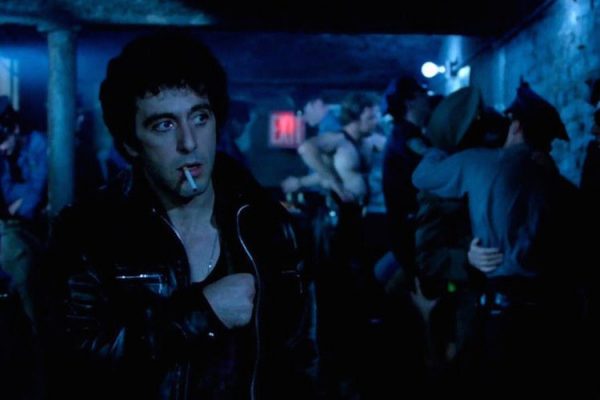Take any aspect of the film Cruising, from either in front of or behind the camera, and you will have something which is worthy of just as much (if not more) discussion than anything else in William Friedkin’s or Al Pacino’s oeuvre. That the film was released upon the world almost 40 years ago is perhaps most striking of all; this is a fearless piece of genre film-making from one of cinema’s most fascinating auteurs.
Set amidst New York’s underground, gay S&M subculture, Cruising assigns rookie cop Steve Burns (Pacino) to go undercover in order to catch a serial killer who is targeting members of said scene. Whilst such a set-up might appear to propose a standard police procedural picture, Cruising is anything but; taking cues from both pornography and slasher movies, the film works best as a gritty thriller about a man forced to deal with repressed desires he never even knew existed.
Pacino – often ridiculed as a loud, hysterical performer in recent years – gives the captivating central performance that typified him at the peak of his powers. Watching him learn the rules of the culture and slowly understand just how far he will need to go in order to identify possible suspects is tremendously rewarding, so much so that the lack of much screen-time for any detective work doesn’t feel like a missing piece of the puzzle. This is a film about a man struggling with himself and discovering that maybe he’s never been himself before.
Sadly, due to issues with the film’s original rating, over 40 minutes were removed and have subsequently been lost. What this footage contains remains a mystery with Friedkin divulging few details other than there had once been explicit and lengthy scenes of a sexual nature. Considering the ambiguous turn which the plot takes in its final act, one wonders whether or not the film originally intended to clarify some of its more baffling decisions in its completed form. Regardless, Cruising works as long as the viewer imprints their own subjective opinion into the action.
When considering the production history here, it’s impossible to not consider the various “what-if’s” that might have changed the final outcome of the film: what if the missing 40 minutes were available for a new cut? What if Steven Spielberg had ended up directing the film, as was intended at one point in time? What if the filming hadn’t been loudly protested by New York’s gay community, so much so that the majority of the film’s audio is overdubbed giving a Giallo feel to the final edit? Whatever the various possibilities that could have been taken, the one we’ve ended up with is not only an interesting and exciting film, it’s an important one too
Available on Blu-ray Mon 19 Aug 2019
